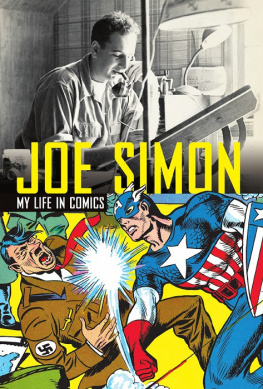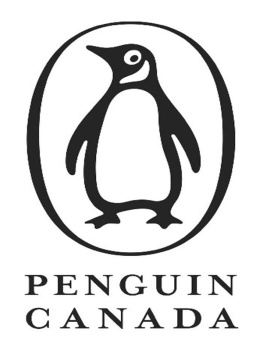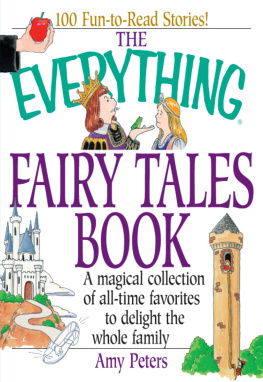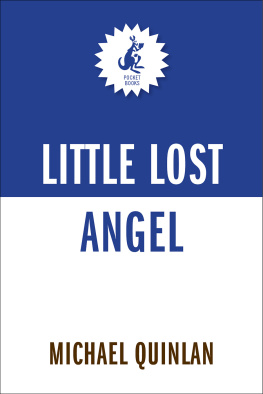ACKNOWLEDGMENTS
Thanks: Ben Abernathy, Dave Bullock, Alina Chau, Caroline Chatelet, Mark Chiarello, Eddie Choi, Adam Gallardo, Shaenon Garrity, Sarah Gaydos, Tom Hart, Toru Hashizumi, Rich Jenkins, Beth Kawasaki, Lance Krieter, Gary Larson for inventing the word thagomizer , Raymond Leslie, Aki Matsunobu, Pop Mhan, Kaitlin Mischner, Jack Pollock, Phil Simon, Joshua Izzo, Brandon Vietti, Keith Wood, Jim Zubkavich, Lindsay Brown, Jenefer Angell, Jen Weaver-Neist, Emmalisa Sparrow, Sara Blum, Cynthia Black, and Richard Cohn.

PHILIP AMARA is a childrens author, former editor of several award-winning comic books, and writer of such critically praised comics as The Nevermen and Sky Ape. As a Boston schoolteacher, he uses comic books, cartoons, and movies to inspire young storytellers.

BEYOND WORDS / ALADDIN
Simon & Schuster, New York
Cover designed by Sara E. Blum
Cover illustrations by J. Bone
Cover copyright 2012 by
Beyond Words/Aladdin
Ages 8-12
Meet the author, Watch videos, get extras, and read exclusives at
KIDS.SimonandSchuster.com

SO, YOU WANT TO BE A COMIC BOOK ARTIST?
You are sitting at your very own table at a comics convention. Behind you is a huge sign with your name written across it. Everything is quiet and seems to be moving in slo-mo. Suddenly CRACK! the doors at the end of the hall burst open, and a huge crowd of people rushes in, straight toward you. They all want you to sign the latest copy of your comic book creation. Some of them are even dressed up as your characters!
Wow, you think as you whip out your pen and begin signing, This is unreal, dude.
Have you ever imagined creating your own comic? With just a few tools and materials, a little guidance, some effort, and a whole bunch of imagination, you can!
I attend comic book conventions whenever I can. Artist friends send me samples of their work for feedback. As a young artist whos just starting out in comics, youll want to have someone look at your work. It might be a brother or sister, a friend, or a teacher. Eventually, youll have the chance to show your work to comics professionals, and theyll want to see that your love of comics shines on the page.
COMICS: A WORK OF ART?
Your parents may threaten to throw your comics in the trash, but you guard them with your life and make your friends swear to keep them in mint condition whenever they borrow them. Sound familiar? Even in the days of downloads and apps, comics fans still like to buy, read, and collect the genuine article right from our local comics shops. As with all forms of art, comics are looked at in different ways by different kinds of people. Some people (not me or you!) consider comics to be a low form of art. Others pay lots of money to collect rare issues of popular comics. It all depends on how you look at it.
Art historians often classify comics as pop art (short for popular art ). Pop art is found everywhere in modern culture and mass media: in computer-rendered art for video games, cartoons, Japanese animated movies ( anime ), magazine illustrations, comic strips, and advertisements.
Did you ever think that you could change the world with a comic book? Just because comics are considered pop art doesnt mean that you cant make a serious statement with them. Some comics are so good that you could claim them as fine art or literature. Countless comic book artists have been recognized and awarded for groundbreaking achievements. Comics have their own language, just like music and film, for conveying emotion, theme, style, and story. They can persuade, entertain, and inform. And just like music and film, comics have the ability to transform the way people think.
If youre going to be a comic book artist, its important to know that comic books are a form of sequential art. This definition includes graphic novels, manga (Japanese comic books), and comic strips. In this book, Ill often refer to all these forms of sequential art as comics, but its helpful to understand some differences between them.
Comic books: You know what they are when you see them Superman , Thor , Bakuman , and the list goes on. But, if you want to get technical, comic books come in every style and format you can imagine. Traditional comic books are usually twenty-two to thirty-two pages long and about 61/2 inches wide by 101/2 inches high, but this can vary a little... or a lot. Some comic books are oversize magazines that stretch tall, while others are tiny and more horizontal. Some take years to complete, and some are done in twenty-four hours.
Comic strips: Though we get our news by computer more and more each day, you should still know what a comic strip is. Theyre usually just a few panels long, in a horizontal format, and tell a quick story or joke. Some famous comic strips are Calvin and Hobbes and Peanuts . Years ago, comic strips like Little Nemo in Slumberland , Prince Valiant , and Tarzan took up a whole page in the newspaper. Nowadays, wed probably call those web comics or eComics, and they might never be published on paper. If you go to a comics publishers website, you can usually find plenty of eComics in lots of different genres and art styles. Its great inspiration.
Sequential art, a.k.a. comics, is a series of repetitious drawings of characters that are used to tell a story. Theres a passage of time, and a beginning, middle, and end. Will Eisner uses the phrase in his book Comics and Sequential Art (W. W. Norton, 2008).

Graphic novels: Typically, squarebound comics close to or over one hundred pages are called graphic novels (or trade paperbacks). They focus on one story or main character. Sometimes this is a collection of a bunch of comics in one book, and sometimes its an original book all by itself. Koge-Donbos Kamichama Karin ran in a magazine called Nakayoshi before it was made into collections. Craig Thompsons 672-page Habibi was originally published all at once in book form. Dont drop that one on your foot!
Zines: Zines are inexpensively produced, self-published publications. The best part about zines is that they can cover just about anythingyour zine can include everything from comics, articles, and reviews to poetry and photos. Because zines are so cheap to make, they are a great way to showcase your talents, get feedback on your work from friends, and experiment with new ideas.
Manga: Manga means comic in Japanese. Manga characters can be magical creatures, pets, sports teams, or ordinary kids off on an extraordinary adventure. Sometimes manga are split into shonen (for boys) and shojo (for girls) in a Japanese comic shop, but you can read what you like, of course. Some of the most popular manga, like Naruto , Fullmetal Alchemist , One Piece , and Case Closed starring Detective Conan, have become animated series in Japan and around the world.

BRYAN LEE OMALLEY
From: London, Ontario, Canada
Job: Full-time cartoonist
His Comic: Scott Pilgrim
What was your first or favorite comic when you were younger?











